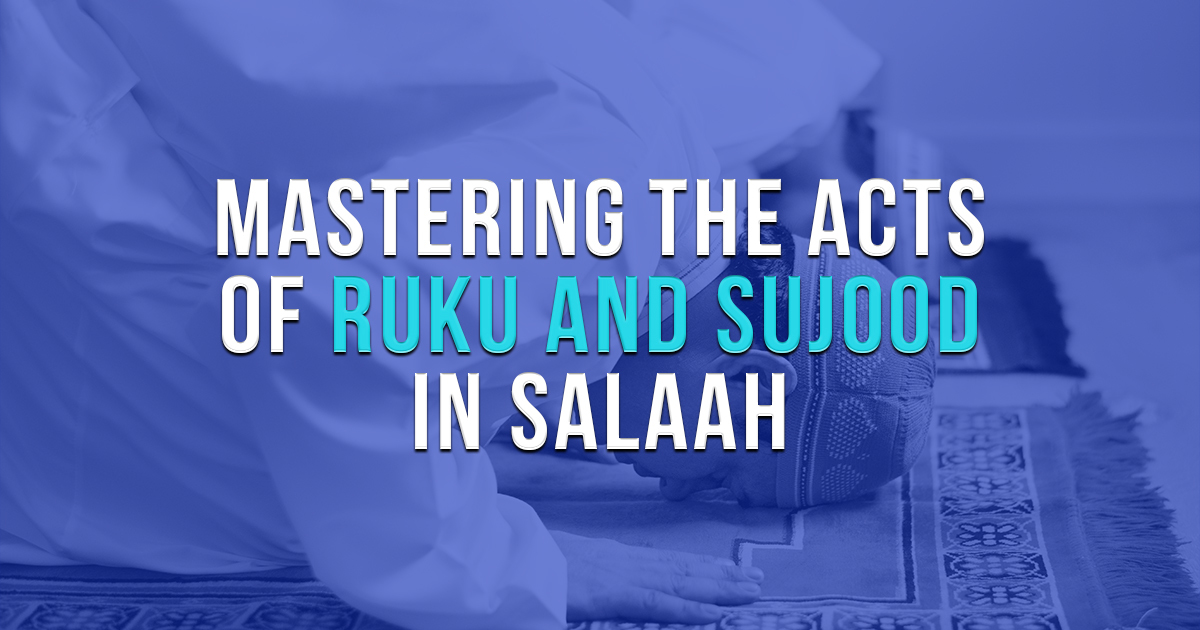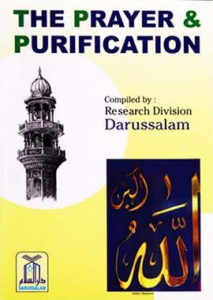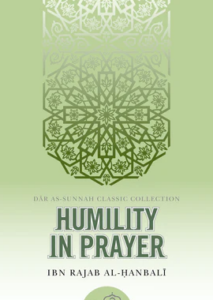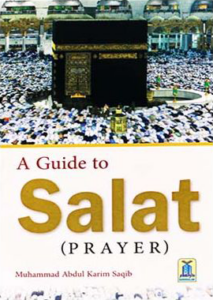In Islam, Salaah (prayer) is a significant act of worship and devotion. It’s not just a ritual but a conversation with Allah, the Almighty. Among the most important aspects of Salaah are Ruku (bowing) and Sujood (prostration), which are performed with humility and reverence.
These acts not only demonstrate submission to the Divine but also embody spiritual significance and physical benefits. Here is a short guide by Darussalam to perfecting Ruku and Sujood in Salaah, following the prophetic way.
Embracing Salaah: The Quintessence of Muslim Devotion
Salaah is the second pillar of Islam and a pivotal daily practice for Muslims worldwide.
Significance of Salaah in Islam
Direct Connection to the Divine: Viewed as a direct line of communication with Allah.
Spiritual Nourishment: Offers solace, guidance, and a chance for self-reflection.
Read More: How to Pray in Islam
Mastering the Acts of Ruku
Ruku is the bowing posture in Salaah that signifies humility and the glorification of Allah.
Perfecting the Form for Ruku
Body Alignment: Ensure your back and neck are straight, with hands on knees and fingers spread out.
Focus and Reverence: Keep your gaze down, focusing on your place of prostration, invoking a sense of submission.
Recitation and Concentration in Ruku
Supplication: Traditionally, while in Ruku, “Subhana Rabbiyal Azeem” (Glory be to my Lord, the Almighty) is recited three times.
Mindfulness: Concentrate on the words, understanding their significance as you say them.
Understanding the Elegance of Sujood
Sujood is the apex of Salaah, signifying the ultimate submission to Allah.
Proper Execution of Sujood
Complete Prostration: Touch the ground with your forehead, nose, palms, knees, and toes. Keep elbows raised above the ground.
Symmetry and Order: Place hands parallel to the ears, fingers together pointing towards the qiblah (direction of the Ka’bah).
Spiritual Elevation in Sujood
Humility in Prostration: Feel the closeness to Allah, acknowledging one’s lowliness in front of the Divine.
Supplications: Repeat “Subhana Rabbiyal A’la” (Glory be to my Lord, the Most High) thrice, and feel free to add personal prayers, for this is the position nearest to Allah.
Learn More: Why is Asr Prayer Important?
The Prophetic Way of Ruku and Sujood
Following the Sunnah of the Prophet Muhammad (PBUH) elevates the quality of Salaah and brings a deeper dimension to the prayer experience.
Imitating the Prophet’s Method
Transitions in Poise: Move smoothly between postures, without haste or tardiness.
Tranquility in Each Position: Give each act its due time, achieving serenity (Tuma’ninah) before moving to the next position.
The Health Benefits of Ruku and Sujood
The physicality of Salaah isn’t merely coincidental; it’s inherently beneficial, much like a holistic exercise.
Physical and Mental Wellness
Lower Back Strength: Ruku helps in maintaining flexibility and reducing lower back pain.
Increased Blood Flow: Sujood promotes increased blood flow to the brain, which can potentially enhance mental clarity.
Explore Our Category of Islamic Prayers and Supplication Books
Embodying the Philosophy Behind the Physical Acts
Ruku and Sujood hold profound philosophical significance beyond their physical postures.
A Mantra of Humility
Acknowledging Human Limitations: Accept your limitations and surrender your ego when bowing and prostrating.
Servitude to Allah: Let these positions be constant reminders of one’s servitude and dedication to the Creator.
Common Mistakes to Avoid in Ruku and Sujood
To attain the full benefit of Salaah, avoid common errors during Ruku and Sujood.
Form Over Speed
Rushed Prayer: Take time to achieve the full posture in Ruku and Sujood without haste.
Neglecting Tranquility: Ensure there is a moment of stillness in each position before transitioning to the next.
The Impact of Proper Ruku and Sujood on Overall Salaah
Improving posture and understanding in Ruku and Sujood can amplify the spiritual efficacy of Salaah.
Enhanced Worship Experience
Greater Khushoo’ (Humility and Focus): Achieving the correct form leads to increased concentration and humility in Salaah.
Deeper Connection and Contemplation: Frees the mind to fully engage in the act of worship, allowing for deeper self-reflection and connection with Allah.
Conclusion: Cultivating a Prophetic Practice
By attending to the precision of Ruku and Sujood, Muslims can align their Salaah with the prophetic model, reinforcing both their spiritual commitment and their physical presence in each prayer.
These acts within Salaah are not just motions but moments filled with opportunities for spiritual growth and self-improvement and should be approached with the reverence and dedication they deserve.
FAQs About Ruku and Sujood in Salaah
Why are Ruku and Sujood important in Salaah?
Ruku and Sujood are acts of worship that signify a Muslim’s humility and submission to Allah, and they are fundamental to the structure and spiritual essence of Salaah.
Can personal supplications be made during Sujood?
Yes, it is recommended to make personal supplications (duas) during Sujood as it is the position where a person is closest to Allah.
How can one improve concentration during Ruku and Sujood?
One can improve concentration by understanding the meaning of the recitations, maintaining the correct posture, and reflecting upon the act of submission to Allah.
Are there any specific health benefits linked to performing Ruku and Sujood correctly?
Performing Ruku and Sujood correctly has various health benefits, including improving posture, and flexibility, increasing blood flow to the brain, and strengthening the body’s core muscles.
What should be done if one is unable to perform Ruku or Sujood due to physical constraints?
If physical constraints prevent one from performing Ruku or Sujood, Islam offers flexibility; individuals may perform Salaah to the best of their capability, such as sitting or indicating the movements with their eyes.













